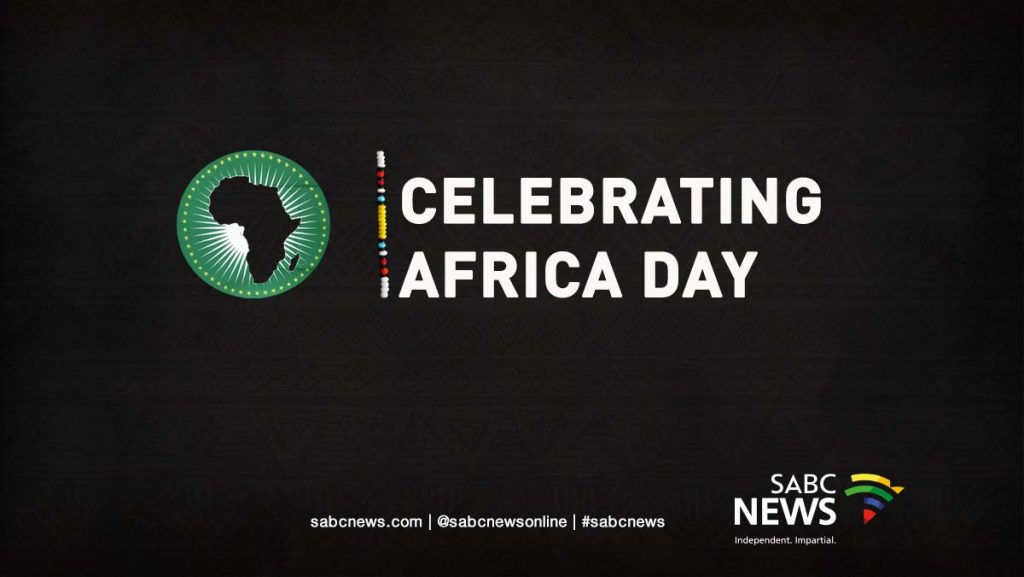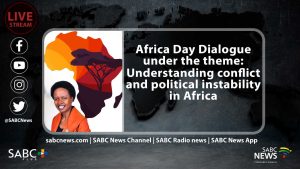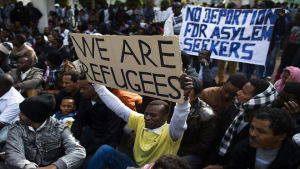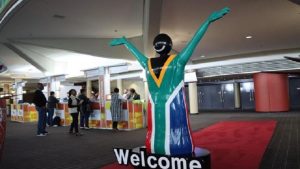I have spent the past two decades living in southern Africa, and often joke about being a “romantic, rather than economic, refugee.” I feel very at home in SA and in the region, as do my children who know this to be home.
As Africa Day rolls around yet again, an incident two days ago feels relevant to reflect upon. I was in a grocery store paying for my purchases when the checkout lady asked me “What language do you speak? ”
This is a situation that I know and have become accustomed to over the years, so I prepared myself for the usual banter about why I look or sound different, and whether it is an American affect (I suspect usually presumed because of my height, girth, and/or my confusing accent) or from some “African” country (presumed from my facial shape, body type, complexion, or yet again this “other” accent even when I politely offer my greeting in isiZulu or seTswana). But as I launched into my usual spiel, the lady stopped me and said – “No, I meant because of the way you are handing me the money; where are you coming from?” (tshwaragano; the respectful way of handing over money or anything really to somebody else in Tswana culture). Oh! I was pleasantly surprised to have a new conversation. “I speak seTswana”, I said (only a slight exaggeration), “My mother in law is from Botswana and is very firm about us showing respect, and it is important to her that my children also learn these cultural practices. In order for them to learn it, I also had to maintain it.” She then asked “So do you guys live in Botswana?”, to which I replied “No, we live around here – in Joburg.” She seemed very pleasantly surprised (I suppose at the quaint mannerisms being carried forward right under her nose), and we carried on from there.
This brief encounter was an encouraging reminder to me of the richness of African connections across space and time which reflect the future that I hope my children will live. As a Kenyan-born woman, married to a moTswana man whose family spans from Mafikeng all the way through the north of Botswana (as far as the village of Sebina, from whence our family name descends, and where our people are in fact baKalanga, a group that extends even further into Zimbabwe), I have spent the past two decades living in southern Africa, and often joke about being a “romantic, rather than economic, refugee.” I feel very at home in SA and in the region, as do my children who know this to be home. They know that they are from South Africa, and that Nkuku lives in Botswana, and that Cucu lives in Kenya, and that they are African – in all of its diversity, complexity and richness. Unfortunately, “what they [actually] speak” has become mostly English due to our motley cultural circumstance (Gogo, who lives with us speaks to them in isiZulu, which they also learn in school), but this is a troubled consequence that we are consciously engaged with.
So what is the future of being African in South Africa? The morning after my Woolies encounter on cultural hand-gestures, I was subjected to what I felt was a rather problematic discussion on the radio about how people feel about the seemingly-ominous prospect of SA opening up her borders. While I do agree that it is a serious and complex issue to contemplate, I felt that what was being expressed by the speakers were unsubstantiated, xenophobic-leaning assumptions and stereotypes about African behaviour, tendencies and impacts on SA. I could have changed accents and place-references and been listening to the most red-faced, right-winged of Brexiters. So much for enlightened Pan-Africanism or Thabo Mbeki’s African Renaissance! So much for ubuntu. So much for me and my children who love and live in SA and have the same aspirations, hopes, troubles and fears as every other South African. And so much for people like me who also believe that SA’s future is intertwined with its continent’s, and with humanity’s, and with the planet’s. That we will seek to address our development, our poverty, our inequality, our climate risks, and every other opportunity or trouble that we can imagine by working together, not by working apart. This is a human, not a political belief. But the conversation I heard, a douse of cold water… it roused fear of the sort that calls for Trump-esque walls rather than a spirit of humanity and oneness that invites novelty and possibility for a new Africa.
There are logical political, economic and other analyses that explain how the future of South Africa is an African future, not that of a unique island south of the continent… however, for me what is most compelling on this Africa Day is the human argument, and the invitation of openness and possibility. Perhaps the borders becoming more rather than less porous will offer us the most important gift of all: innumerous connection to other humans not defined by colonial territory, but by interest, and maybe even by love.
—–

Dr Geci Karuri-Sebina is an Associate with South African Cities Network, a peer-based network of SA’s largest cities, and a Visiting Research Fellow at the Wits School of Governance.






